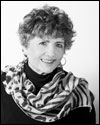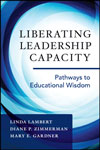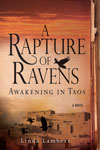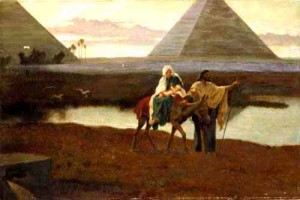Family
« Older EntriesWho was the Virgin Mary? Really?
Wednesday, December 17th, 2014
The identity, personal diary, and genealogy of Mary of Nazareth and her son, Jesus, are expressed in the first two novels of the Justine Trilogy: the award-winning, The Cairo Codex and The Italian Letters (release, October, 2014). Perfect Christmas presents. The third in the trilogy, A Rapture of Ravens, will be released in June, 2015.
Tags: Christmas, codex, Egypt, history, Jesus, trilogy, Virgin Mary, writing
Posted in Books Inc., Egypt, Family, Fiction, genealogy, history, imagination, Italian Letters, trilogy, writing | No Comments » | Leave a Comment
The Nautilus Award–What is it? Why Nautilus?
Sunday, April 27th, 2014
This week our grandson, Jered, was quick to suggest the origin of the Nautilus Award. Of course, I realized. Jules Verne’s Twenty Thousand Leagues Under the Sea tells the story of Captain Nemo and his submarine, the Nautilus. Verne is revered for his imagination, innovation, creativity.
My historical novel, The Cairo Codex, won a 2014 Silver Nautilus Award for Fiction. The awards will be announced on May 1. The awards represent “Better Books for a Better World.” Now in its 15th year, this unique book award program seeks, honors, awards, and promotes print books that inspire and connect our lives as individuals, communities and global citizens. Dedicated to excellence and the highest literary standards, the Nautilus Awards seek and promote well-written and -produced books with messages about caring for, understanding, and improving every aspect of our lives and relationships.
I’m proud to be a member of the Nautilus family!
Tags: fiction, novel
Posted in creativity, Family, Fiction, history, imagination, Nautilus Award, writing | No Comments » | Leave a Comment
A Remarkable Holiday gift chronicles the Flight into Egypt
Monday, November 25th, 2013
Whether the object of your affection is Christian, Jewish, Muslim–or none of the above–The Cairo Codex is the perfect holiday gift. This riveting historical novel explores the world of Egypt in the year 2 and modern times. The codex discovered by anthropologist Justine Jenner is found to be the diary of Mary of Nazareth, mother of Jesus. The compelling first-person account sets forth the illuminating struggles and strengths of women through the ages and answers haunting questions: Why did the flight into Egypt really happen? Who was Mary and how did she become literate? If she was the primary teacher of her remarkable son, how did she teach reflection and social values? What would current day Christians and Muslim do to keep such a diary from coming to light? Discover these answers and more in this provocative new novel. Linda Lambert
Tags: Christian, codex, discovery, Egypt, history, Jesus, Jewish, Muslim, Virgin Mary
Posted in Arab press, Egypt, Family, Fiction, history, Travel, Uncategorized | No Comments » | Leave a Comment
The Road to Taos: Are Book Tours Worth It?
Tuesday, October 1st, 2013
Bob Hope and Bing Crosby never made a movie entitled, The Road to Taos, although they performed admirably in Morocco, Bali, Singapore, Zanzibar, Rio, and Hong Kong. All on a back lot at Universal Studios. Not likely that they ever attempted the Road to Needles, which is where we drove this morning.
But a few words about last evening at the delightful Skylight Bookstore on Vermont Street in LA. A small crowd, so without friends and relatives, I have to wonder if it is worth it. As we drive through the desert, images of book talks float like mirages, and singular occurrences surface.
…on the Mendocino-Sonoma coast, The Cairo Codex outsells The Zealot, and every other book. Ok, loyal friends are great.
…at Book Passage in Marin, a woman from India tells me she intends to recommend The Cairo Codex to her book club on her arrival back home in India.
…at the Capitola, CA, Bookstore, a woman who lived in Cairo for four years invites us to her house to see a painting by a friend of the inside of St. Sergius Church in Old Cairo—the very church where the Codex was found!
…at Skylight books in LA, a woman from the Midwest who married an Egyptian, has a film agent son named Ramses, and asks, “Can you write a screenplay?”
If serendipity is the magic that catapults a novel onto the public stage, perhaps book talks are worth it. What do you think?
Linda
Posted in Book Tour, Education, Egypt, Family, Fiction, Taos, Travel | No Comments » | Leave a Comment
Book Tour Adventures-Depending on the Kindness of Friends and Strangers…
Monday, September 30th, 2013
As my book tour for my new novel, The Cairo Codex, began in Seattle on August 21st, I began a rapid course in the process and rewards of the undertaking. This post will continue tomorrow with The Road to Taos. In the meantime, here is what I’ve learned so far.
Before undertaking the expense and time for a book tour, ask yourself:
-Is it a good investment of monies? If you have a host for lodging, perhaps. The jury is still out here for me—will let you know as we go along.
-Can you accumulate an assortment of loyal friends and relatives as the basis of a crowd? This is essential.
-Does the bookstore in question advertise well? (Barnes and Noble advertises only inside the store.) Book Passage in Corte Madera, has an active on-line magazine. Books Inc., Opera Square, in San Francisco advertises in the San Francisco Chronicle.
-Can you rely on “the kindness of strangers,” as proposed by Blanche in Streetcar Named Desire, to supplement loyal friends? After all, your loyal gathering would probably have bought your novel anyway.
-Are you leaving signed books behind that will be well displayed?
-Will you create a sincere relationship with your host who will then promote your work?
I’m speaking at Skylight Books in Los Angeles at 7:30 tonight, so I’ll have more to report tomorrow.
Linda
Posted in Book Tour, Family, Fiction, Travel | No Comments » | Leave a Comment
Could the Virgin Mary have been literate?
Tuesday, July 23rd, 2013
It’s more than plausible. Mary of Nazareth’s grandmother, Faustina, came from Mt. Carmel north of Jerusalem. This community was a stronghold of the Essenes, the peoples who wrote the Dead Sea Scrolls. In The Cairo Codex, Mary discusses women, writing, and equality with her son, Jesus:
…“Why the papyrus? For writing to family in Palestine?”
“Yes, my son. Family members are hungry for news from us. They ask about how you and your brother are growing up and what it is like to live in this land. They miss us. And your father misses his family.” I take a few clusters of garlic from my pocket to hand to the scribe. My son hesitates before asking the question I knew was pressing on his young mind.
“I have noticed that Rachel and Noha do not write. Can only some women write?”
“All women can write if they are taught how. Just as you were taught to read and write….”
“How did you learn to write, Mother?” my son says, balancing on the edge of the rock and folding his tunic between his tanned legs.
“It is unusual for women to learn to write. You observed well. I was fortunate. My grandmother taught me when I was but a girl. She thought it important for women to be able to do many of the same things men do. Grandmother considered inequality the source of all evil. I wish you could have known her.”
“What did she mean ‘inequality is the source of all evil’?” he puzzles. The tea arrives in two chipped, unmatched cups. I hand the boy a cluster of garlic. My son has an inquiring mind, much like I was as a child. “What do you think she might have meant?”
“I don’t know. To me, most people seem unequal; Noha is not like Rachel, Isaiah is not like Samir.”
“I see the same things. But Grandmother also talked of inequality between the rich and poor, men and women, the educated and uneducated, the old and the young, Jews and pagans, Romans and Israelites. These inequalities lead to misery, hatred and wars, which are evil. Her family came from Mt. Carmel and had many strong ideas about how life should be lived. Many of these ideas I carry with me.”
“But why did God make us unequal if He wanted us to be equal? I don’t understand.”
“I’m not so sure God made us so. Perhaps we did that to ourselves. It is we who choose to obey the powerful and deprive others of their rights. Perhaps God gave us these choices to test our compassion.”
Women, writing, and equality are elegantly interwoven. That is why we are compelled to educate young girls.
Posted in Education, Egypt, Family, Fiction, Travel | No Comments » | Leave a Comment
The Great Topeka Tornado of June 8, 1966
Tuesday, May 21st, 2013
Unlike the tragic victims of the Oklahoma tornadoes, we were safe. Our housing development in suburban Topeka was built at the foot of Burnett’s Mound, an Indian burial ground named after Potawatomi Chief Abram Burnett, that had protected the area for hundreds of years. The theory was simple. If a tornado approached from the southeast, it would simply lift off or disintegrate as it raced across the top of the mound.
Two days before, I had graduated from Washburn University. By 7:00 p.m. on June 8 our family, including our four-year old son and five-year old daughter, had bathed and packed for a trip east the following morning. It was raining. The windows were closed. We had gathered near the television in the half-basement to watch the startling storm warnings. Our home, like many others in the area, was designed with a concrete foundation flush with the driveway in front, yet partially embedded in the soil behind.
We felt reassured of our safety by Bill Kurtis, then a small town reporter, but later a well-known CBS anchor, even though he reported that the rapidly forming tornado had struck down a few miles outside of town and was headed for Burnett’s Mound. We stood mesmerized, watching the set when Bill yelled: “It’s on the ground. It’s on the ground! For God’s sake, take cover!” The tornado—now a mile across—had topped the mound, but instead of lifting off, stayed on the ground.
We jumped into action. While I dialed my brother who, with his family, lived in a fragile barracks on campus, my husband lifted a stuffed chair into the miniature half-bath. We edged the children underneath and closed the door behind us, reminding ourselves that a bombing that week in Saigon only had a few survivors—those who had taken shelter in the bathroom.
When the tornado ripped the house off our heads, it was deafening, like a 747 landing on top of us. Everything went dark and time stopped. The plumbing structure above us snapped and water poured into our small space. Later, our children would tell us that their greatest fear was being drowned. We were certain that the event lasted for several minutes, although it was only moments.
The F5 tornado took hundreds homes in our area and stayed on the ground all the way through town. Because windows were closed against the rain, distant neighbors would report that our houses were lifted intact into the air and exploded. The university was stripped of trees and sacred stone buildings. The menace didn’t lift off until it had finished with Topeka, including the downtown. At the time, it was the most expensive tornado in American history.
We learned a great deal that day, and in the days that followed:
- Don’t panic. Remain calm and apply what you know about tornadoes. Our neighbor’s five-year old son was killed when he was pinned to a tree by a two-by-four when the family panicked and raced for their car.
- Stuff doesn’t matter. We lost everything, but all that mattered was that we still had each other. For years to come, we would never cherish things.
- Expect surprises. Our jar of travel monies rolled to the bottom of the non-existent stairs. My Blue Cross insurance card was mailed back from St. Joseph, Missouri. Our tornado insurance policy was stuck on a nail in our front yard.
- Families, friends and communities become closer. People can depend on each other for food, for lodging, for protection. For years, we enjoyed block parties with our neighbors.
- 5. If you live in the “tornado belt,” for God’s sake, buy tornado insurance.
A few years later, when we announced to family and friends that we were moving to California, they cried: “Aren’t you afraid of earthquakes?”
Posted in Articles, Family | No Comments » | Leave a Comment
Death of a Saint
Monday, April 22nd, 2013
Ansaf Aziz, a young woman with sparkling eyes and intelligence from Upper Egypt fell in love with her English teacher, married him and moved to Assuit, where she would give birth to three extraordinary children, one boy and two girls.
Madam Ansaf, as we called her, later moved to Cairo and began a program of micro-loans for poor women before Muhammad Yunus of Bangladesh (winner of the Nobel Prize) thought of the idea. She had been successfully carrying out this loan program for nearly 20 years when we met her in 1989—the year my husband and I moved to Cairo. She loaned monies to women so that she could earn an income for the family and become independent entrepreneurs. A bean pot, a sewing machine, a small oven, plus skills, and craft bazaars for fund-raising—support wherever needed.
Soon after our arrival in Cairo, where I worked as a State Department envoy working with Egyptians to set up a national curriculum center, we had dinner with Andrea Rugh, a Harvard anthropologist and author of multiple books on the Middle East. We asked Andrea, who is now with the Middle East Institute, how we might work and learn with the poor people of Cairo without going through the cumbersome bureaucracies. She took us to meet Madam Ansaf, a close friend of hers and the focus of the text she was working on at the time.
From that day forward, Ansaf adopted us and our three children when they visited. We had many dinners at her home in Shoubra and became friends with her family, especially son Hanna and his wife Laurence and daughters. Her joy was contagious as though she knew that her path was blessed. I had the honor of accompanying her into the back streets of Boulak and meeting with groups of women who gathered to talk about their lives. As a Coptic Christian going into Muslim homes, she annoyed the Brotherhood, but no one dare touch her. For the next two decades, we contributed to her work.
My husband, Morgan, then working as a page editor for The Middle East Times and part-time instructor at American University, Cairo, wrote a tribute to her entitled, “Mother Teresa of Cairo.” Indeed she was.
I remember when she was around 85 (she thought—no one knew for sure) and she had never been to a doctor. Her son told her that as long as she was doing God’s work she would be well. Her grandson, Nader Wahbi, just wrote to us that his grandmother turned her faith into action. Indeed she did.
We last saw Ansaf in May, 2011, when we visited Cairo to learn about the aftermath of the revolution. She was in decline by then, but insisted on staying in her own home, which was leaning significantly as a result of the last earthquake. She would eat very little and told me, “I cannot eat when I know there are so many without food.”
Madam Ansaf, known as the Mother of the Poor of Boulak, was a saint. She passed away peacefully on March 10, 2013.
Posted in Articles, Education, Egypt, Family, Leadership, Travel | 4 Comments » | Leave a Comment
The Truth about Egypt…
Friday, September 14th, 2012
At least an essential part of the Truth. Many of you know that we lived in Egypt and returned many times, including last year. So when the Embassy in Cairo was attacked two days ago, I contacted three of our closest friends there, two Muslims, one Coptic Christian. Their responses, sans names, are below.
E-mails from two Muslim friends:
Dear Linda and Morgan,
Thank you for asking. We are safe, thank God. The disturbances are around the American Embassy compound and part of Tahrir Square. The rest of Cairo is calm. While most Egyptians are angry about the incendiary film against Prophet Mohamed, they are against any violence to make their point. Wise Muslims are only too well aware that such wild reactions only serve to score points against Muslims. The killing of the American Ambassador and his colleagues in Libya is truly tragic and regrettable. If only EVERYONE exercised calm and sound judgment!
––––– (daughter) is not involved at all with the protests. She started a new job with the International Labor Organization and seems to enjoy it. Her work will involve traveling to Morocco. Not bad, heh? Thanks again for your concern. We look forward to hearing from you.
Love, ________
My dear Linda and Morgan,
Although events here are moving very fast and they are really hectic and difficult to follow and understand, we are all safe.
My children and grandchildren are ok. School has already started and life goes on. I just hope things settle down faster since people are really under a lot of stress here and prices are rocketing sky high making living decently very tough.
Best regards to you and Morgan hoping that you are both in good health,
E-mail from our Coptic Christian friend:
Dear Friends Linda &Morgan,
Yes, we are very safe, we only feel sorrow for the death of the American
diplomats in Libya. Egypt is still Egypt– those ugly people here or there cannot change its peaceful laughing face.
Love to you, _________
When we lived in Egypt during the Gulf War, family members would call during broadcast demonstrations, assuming we were in imminent danger. However, unemployment, high food prices, and a disappointing transition under the Muslim Brotherhood—all are stimulants for blame and anger. And the abhorrent film provided that trigger. As we came to understand some time ago, when peoples have only lived under dictators, freedom, particularly the freedoms of religion, speech and the press, are difficult to understand.
Linda
Posted in Family, Fiction, Leadership, Travel | No Comments » | Leave a Comment
Italian party
Thursday, August 16th, 2012
It has been nearly four months since the sparkling evening at Il Pero, the Tuscan estate of Baroness Miranda and Baron William Taxis and their lovely daughters, Isabella and Annie. The release of Etruscan Evenings. A dozen guests from the states: California, New Mexico, Taos–and another thirty Italians and English. Today, I spoke with the Gualala Arts book club on Etruscan Evenings--two other books clubs in between. Fiction continues to inspire and excite. Having fun now writing the third novel in the trilogy set in glorious Taos.
Posted in Family, Fiction, Travel | No Comments » | Leave a Comment





 Conceptions of leadership have evolved, and Liberating Leadership Capacity captures these new ideas and provides a pathway to create sustainable systems of high leadership capacity. Available April 2016 from
Conceptions of leadership have evolved, and Liberating Leadership Capacity captures these new ideas and provides a pathway to create sustainable systems of high leadership capacity. Available April 2016 from  A sizzling new novel set in Taos, New Mexico. The third in the Justine Trilogy, preceded by the award-winning, The Cairo Codex and The Italian Letters. Buy it at your local independent bookstore,
A sizzling new novel set in Taos, New Mexico. The third in the Justine Trilogy, preceded by the award-winning, The Cairo Codex and The Italian Letters. Buy it at your local independent bookstore, 

